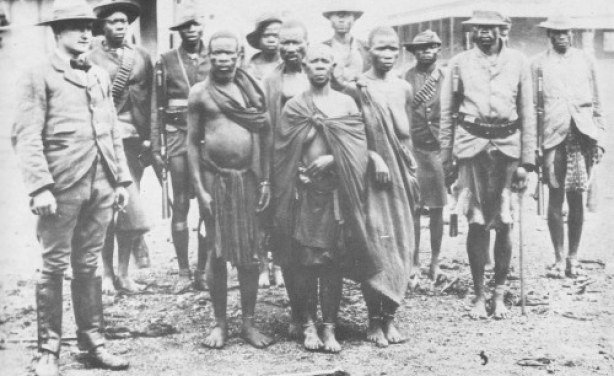Zimbabwe asks Britain for skulls of colonial resistance fighters back
Zimbabwe’s president is demanding the return of “decapitated heads” of warriors killed during “the first chimurenga”, an uprising against British colonizers at the end of the 19th century, reports the Telegraph.
Zimbabwe’s state-controlled Herald newspaper reported on Thursday that the heads would be sent back to the country as soon as the logistical issues had been resolved.
British Embassy representatives in Harare confirmed that the repatriation of Zimbabwean remains had been on the table for discussion for around six months, but did not reveal whether a final decision had been made.
“The Herald” says the British embassy acknowledges that there are Zimbabwean remains in the UK.
The repatriation of human remains to their places of origin is relatively common practice in Europe.
On Monday, Mugabe accused the United Kingdom government of racism, sadism and insensitivity for displaying the skulls in London’s renowned British History Museum.
According to an official diplomatic statement, there are 20,000 human bones in the museum’s collection, and identifying the remains’ origins may take a lot of time.
“We await the appointment of the required Zimbabwean experts in order to take this forward”.
The director of Zimbabwe’s national museums and monuments, Godfrey Mahachi has said full details will only emerge after a meeting with museum counterparts in London.
He said Professor Terence Ranger, a British academic and Zimbabwe expert who died in January, discounted the theory and “talk” that the head or remains of Chief Makoni was sent to the UK after he was shot by firing squad during the rebellion.
“The first chimurenga leaders, whose heads were decapitated by the colonial occupying force, were then dispatched to England, to signify British victory over, and subjugation of, the local population,” Mugabe said this week, during a Heroes Day commemoration in Harare. “The process that is now taking place is about how we are going to handle the repatriation”.
Zimbabwe attained its independence from Britain in 1980.
Zimbabwe’s National Heroes Day commemorates the lives of those who died opposing British colonial rule. Known as the First Chimurenga, or First Liberation War, the 1893-1896 war pitted Zimbabweans using spears and bows and arrows against white settlers with guns.
Once the remains are repatriated, the 91-year-old president added, the government would consult with traditional leaders about how to bury them at sacred shrines across the country. These people who displayed trophies are mourning Cecil.








